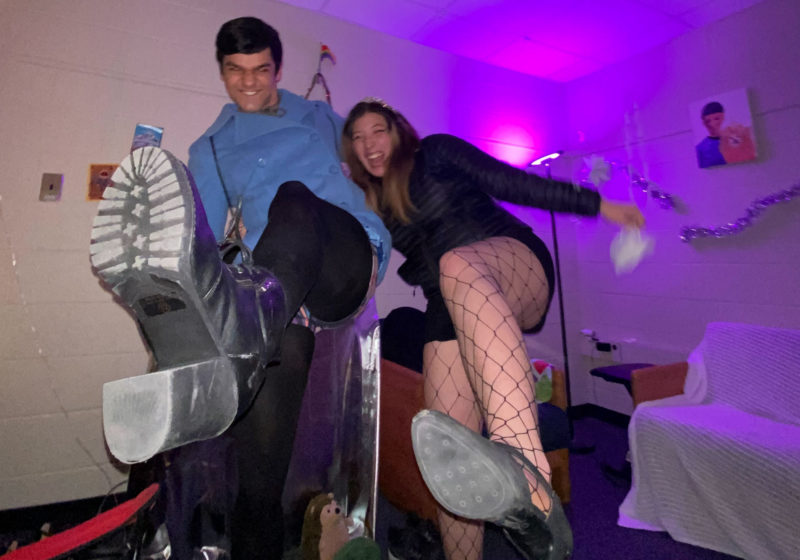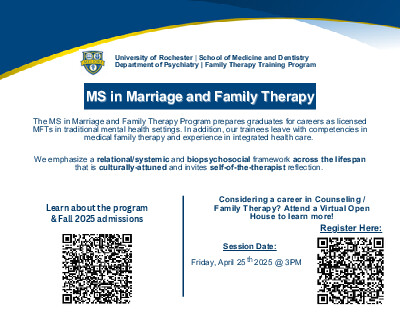When you go to see a musical, there are usually a couple reasons for going. The biggest one is entertainment — after all, that’s the main point of theater. Maybe you’re interested in the story the show has to tell, or maybe the music seems compelling to you. Maybe the promotion had interesting costume design, or the actors looked really into their roles. For whatever reason, you think you’ll be entertained. Another reason could be to be a patron — to support the arts, to bring an audience to this form of expression that has suffered significantly as a result of COVID-19, to support friends or family in the cast and crew.
My reason for attending “Hedwig” was twofold. One, I had friends in the show, many of whom I was lucky enough to work with in the ROC Players production of “Falsettos” this past fall. Two, I write for the Campus Times, and our culture section is in part made to support local talent. However, I didn’t realize that my support would be returned back to me by the show itself in the form of guiding me through an emotional rollercoaster, identity crisis, and musical bombardment all in one.
“Hedwig,” to my initial surprise, had nothing to do with the Harry Potter owl — instead, it’s a show about genderqueer East German singer Hedwig Robinson, who monologues about her life within a fictitious facade of a concert (which serves as the setting for the rest of the show). While there is a lot of comedy in how many of the lines come across, many of the stories Hedwig tells are heartbreaking, especially when it comes to her struggles with her identity and how the world perceives her. Notably, the initial depiction of former-beau-turned-more-successful-rock-star Tommy Gnosis is a beat where Hedwig throws open a door filled with smoke to “hear” Gnosis’ packed concert next door. When we later hear from Hedwig herself about the two being caught in a road head-induced car accident, Gnosis’ role in the show feels like a comedic attempt at a foil to Hedwig — however, as the plot unfolds, Gnosis becomes yet another twist of the knife when it comes to Hedwig’s conflict against her womanhood (quite literally).
To address some of the technical aspects of “Hedwig:” the character of Hedwig being double-cast really worked for me. For some parts of the show, you get to watch junior Cooper Orio lounge atop a box while making dick jokes or jump on a trampoline while singing with near-impossibly perfect breath support, and others feature senior Jack Bell in the midst of a sultry costume change or a ballad to a dressing room mirror. The changes in Hedwig’s actor follow the emotional beats of the story, and having each actor be able to focus on a part of Hedwig’s life seemed to help them sink deeper into the grit and gall of Hedwig at specific sections of her life. Props as well to first-year Aidan Trumble, who specifically rendered me speechless after the rapid-fire exposition-turned-yeehaw-bop that is “Sugar Daddy.”
However, the gender-fuckery of the casting doesn’t end there: The majority of the characters are genderbent to some degree. This goes for main characters like Yitzhak, Hedwig’s talented backup singer and husband, being played by senior Abby Delio, whose powerful belt in “Hedwig’s Lament” and most impressively in “Midnight Radio” had my entire group of friends who were in attendance completely floored. In addition, senior Isabel Hudson plays the masculine American soldier Luther, complete with a cartoonish mustache that really helps play up the hilarity of the show. In this way, traditionally-cast roles like junior Anoutsa Latsapanya as Hedwig’s mother and first-year Gabriel Pierce as Tommy Gnosis feel especially rooted in their femininity and masculinity in a way that “Hedwig” shirks at almost every other turn.
The band, led by sophomore Jacob Rose (with incredible support from senior Zach Uchima on guitar, senior Cash Close on bass, and junior J Max Morris on drums) helps each song along. The audio from the band being on stage alongside the majority-masked cast vocals made hearing lyrics near-impossible at times, but the general effect of each song came across. The majority of the issues with my comprehension of “Hedwig” were due to staging choices and the masking requirements for actors affecting the audio quality of the fast-paced, witty dialogue that I wished I had more time to hang onto. Despite it all, “Hedwig” happened to resonate with me in a way I didn’t expect due to something completely offstage: the drag option.
As a stupid dummy who can’t read, I noticed that there was a free option to attend the show if you dressed up in drag (tickets were free for all UR students anyway). I prepped to do so, with a pair of shitty Goodwill heels and a shawl only the most pretentious of choir directors could even dream of owning. I’m not the type of person to dress up — in fact, due to my never-ending uncertainty of my own identity and how I want to portray myself, physically putting myself in the limelight of attention is my least favorite thing possible. However, focusing on having fun with my portrayal of myself through this haphazard drag helped me separate myself from that insecurity. It was freeing in a way I’m sure Hedwig herself, with her over-the-top wigs and concert getups, would have known all too well. I’m glad that Todd’s using their new theater and their talented students to tell stories that have modern compelling narratives like “Hedwig,” and I hope they continue to keep that in mind for their shows to come.





